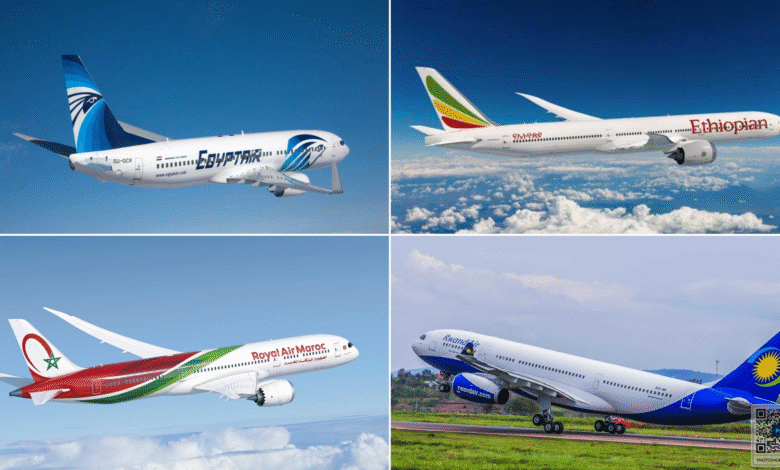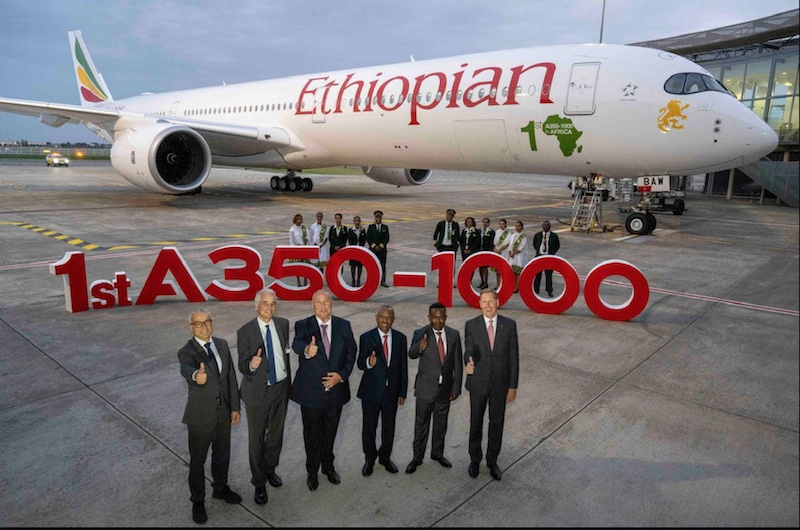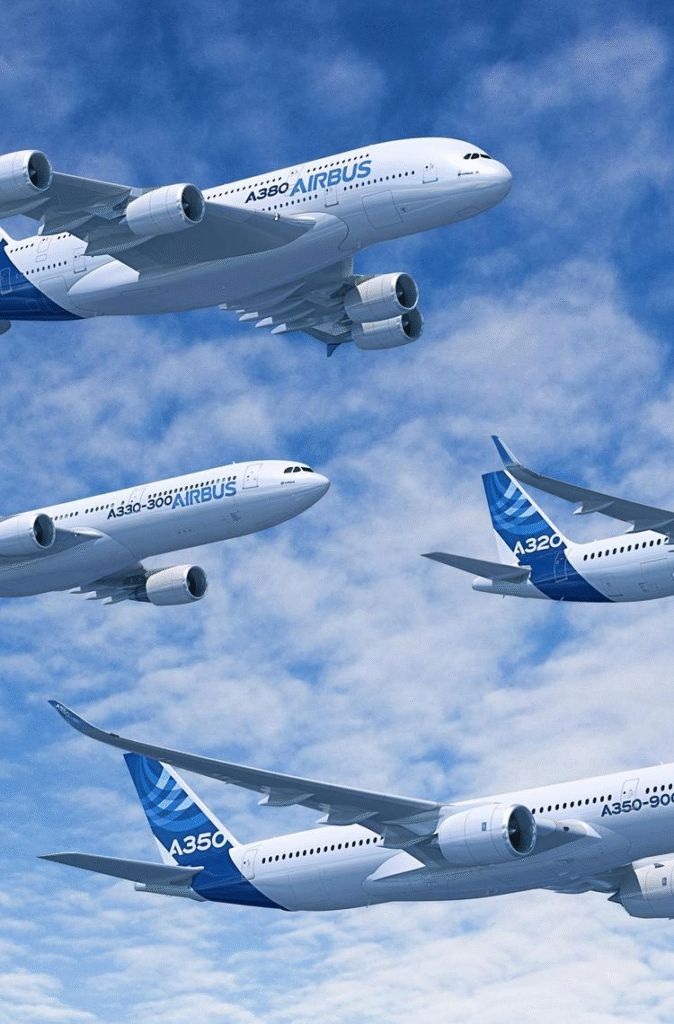Airbus in Africa : a strategic partnership for a more ambitious sky
For nearly fifty years, Airbus has been forging a lasting connection with Africa. Present throughout the continent, the European manufacturer has established itself today as an essential partner for African civil, military, and space aviation.

By YG
Airbus’ history in Africa dates back to 1976, with the arrival of the A300, the manufacturer’s first commercial aircraft to be operated there. Since then, Airbus has conquered African skies: nearly 265 aircraft are currently in service with about 38 airlines on the continent, according to the group’s latest press release. Leading carriers such as Ethiopian Airlines, Rwandair, EgyptAir, and Air Côte d’Ivoire operate today the most advanced models of the Airbus range, such as the A350, A330neo, A320neo, and A220.

Ethiopian Airlines, often cited as an African success story, has strengthened its collaboration with Airbus through a comprehensive seven-year maintenance contract for its A350 fleet. This partnership illustrates Airbus’ strategy: combining technological performance, operational reliability, and long-term logistical support. In a context where Boeing struggles to maintain its position on the continent — with only two deliveries in 2024 compared to strong commercial momentum for Airbus — the European manufacturer continues its momentum, with a 58% market share on new orders in sub-Saharan Africa. This trend is supported by demographic growth, rapid urbanization, the emergence of a middle class, and the liberalization of African airspace via the Single African Air Transport Market (SAATM) project.
An evolving industrial, military, space, and social presence
Beyond commercial aviation, Airbus offers a diversified portfolio on the continent. In defense, nearly 100 tactical transport aircraft, such as the C295, have been delivered to 20 African countries, with Egypt as the main user. In the helicopter sector, more than 500 aircraft are in service, fulfilling civil, medical, security, or tourism missions.

Airbus is also very active in space. The company cooperates with national agencies such as those of Egypt, Kenya, and Uganda, notably within the framework of climate missions linked to the United Nations Sustainable Development Goals. The manufacturer has also delivered satellites to the Algerian and Egyptian governments, while working on the establishment of a virtual space data center in Namibia. On the industrial side, Airbus collaborates with more than 100 African suppliers, mostly based in Morocco, Tunisia, and South Africa. They contribute to manufacturing key components (fuselage parts, electronic equipment, etc.).
Finally, the social and educational dimension of Airbus’ strategy is illustrated through the Airbus Foundation. Humanitarian support, education with the program The Little Engineer (already more than 9,000 students trained), partnerships with universities, and support for local startups — all these initiatives demonstrate the group’s ambition: to invest long-term in Africa’s human potential.
With a growing fleet, a multisector presence, and a strategy focused on innovation and sustainable development, Airbus plays a role in Africa’s takeoff.






